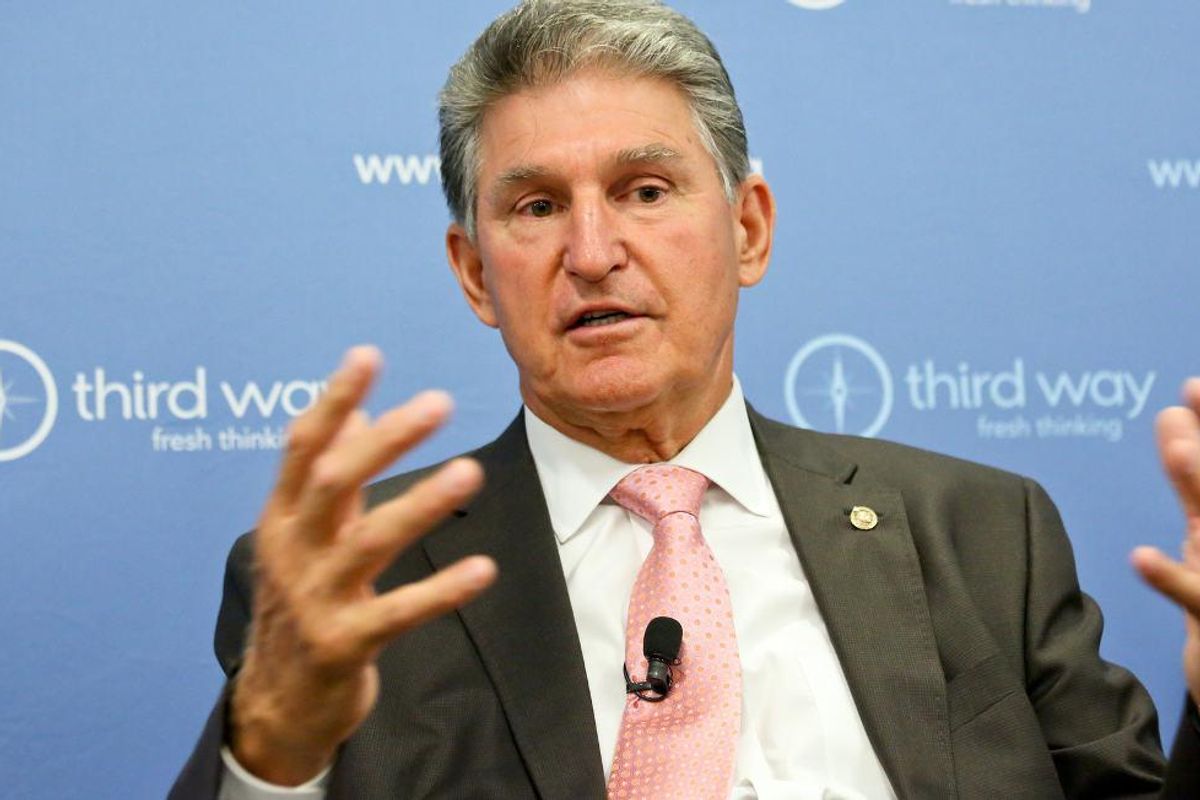
I’ve been thinking about how the precarious state of American politics will guide climate policy.
It looks like the key to it all is understanding West Virginia politics. And I’m not sure anyone, anywhere, understands West Virginia politics. Or maybe it’s just me, because West Virginia politics surely beats the heck out of me.
Because somehow, pro-coal moderate Democrat Joe Manchin just became President Joe Biden’s Senate point man on climate change.
Taking his shot
A reliably Democratic state for decades, Bill Clinton carried West Virginia by 13 points in 1992. But like so many largely rural states out west, the Mountaineer State’s socially-conservative base began to erode that advantage. And its blue politics turned red in a few decades, notably helping George W. Bush win the contested 2000 Presidential election.
Elected Governor in 2005, Manchin set his targets on a U.S. Senate seat in 2010. And by “set his targets,” I mean a campaign ad had Manchin literally take a .303 and shoot a hole in a “Cap and Trade” bill, all at once boosting coal, praising guns, and threatening the Environmental Protection Agency. Nice shot, Joe.
The lone Dem
Proceed to the Senate, a partial term to replace Robert Byrd, a political titan and ex-Klansman who had served 51 years in the Senate.
Manchin comfortably won re-election in 2012 and 2018, even while West Virginians rejected the top of the Democratic ticket in 2016. Hilary Clinton not only got crushed in West Virginia, she helped crush herself. “We’re going to put a lot of coal miners and coal companies out of business,” she told a March 2016 town hall, shortly before her first crushing at the non-mittened hands of Bernie Sanders in the presidential primary.
Also on Election Day 2016, West Virginians defied their own trend by choosing another Democrat for Governor. At six feet seven, 368 pounds, and with the too-Hollywood name of Jim Justice, he was the state’s wealthiest resident — and a Democratic coal baron. Seven months after his inauguration, Justice announced a switch to the GOP. Once again, Manchin was the only Democrat standing in a once all-blue state leadership.
Wild card
Should Manchin follow Justice and decamp for the Republicans, the brittle Democratic hold on the Senate would be lost, and Joe Biden’s vision for sweeping change would be lost. Manchin has never voiced such a threat, but such a move could be as politically consequential as the ones that gave Biden a 50-50 Senate “majority.”
That’s how the Senate Democrat with the most atypical track record on climate and coal came to hold so many of the party’s cards. Unlike Jim Justice, Manchin accepts the overwhelming scientific view that climate change is real, human-induced, and a deadly threat. But he supported President Trump’s 2017 withdrawal from the Paris Climate Accord, and he’s been an avid backer of plans to turn the Ohio River Valley into a plastics-manufacturing hub, accessing the region’s fossil fuel wealth. Manchin also backs making West Virginia a focus of carbon capture. Efforts to date to draw carbon out of fossil fuel combustion have been a multi-billion-dollar failure.
Biden’s climate team, studded with international czar John Kerry; domestic boss and former EPA Chief Gina McCarthy, and Energy Secretary designate and former Michigan Governor Jennifer Granholm, all come from a different place— philosophically and geographically—than Joe Manchin. It will be one of the first of many dramas for Team Biden’s environment dreams.
Peter Dykstra is our weekend editor and columnist and can be reached at pdykstra@ehn.org or @pdykstra.
His views do not necessarily represent those of Environmental Health News, The Daily Climate, or publisher, Environmental Health Sciences.
Banner photo: Senator Joe Manchin in 2017. (Credit: Third Way Think Tank/flickr)

